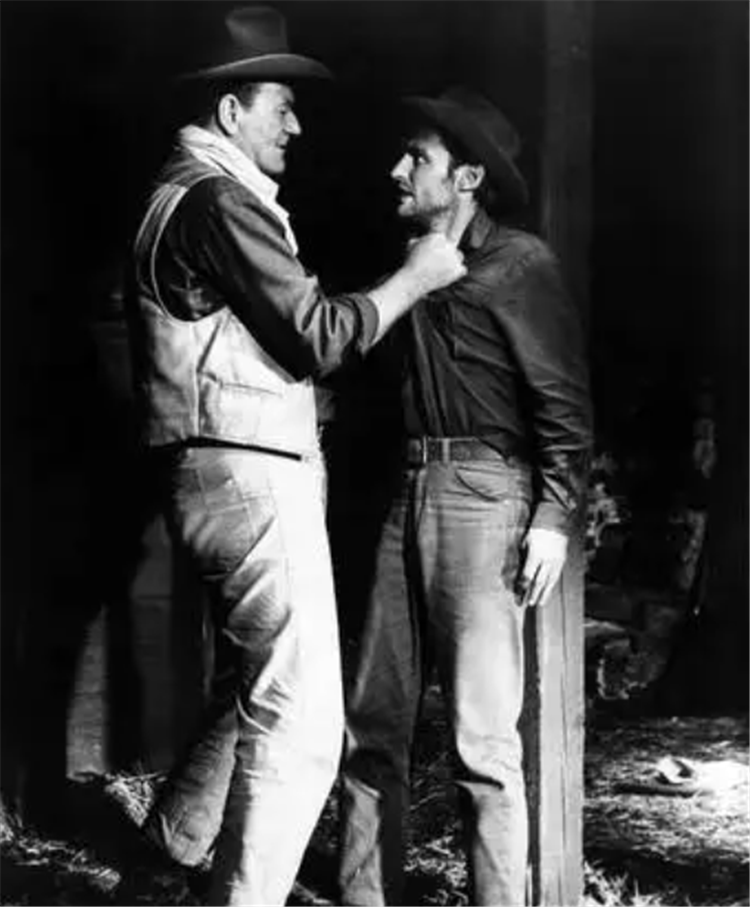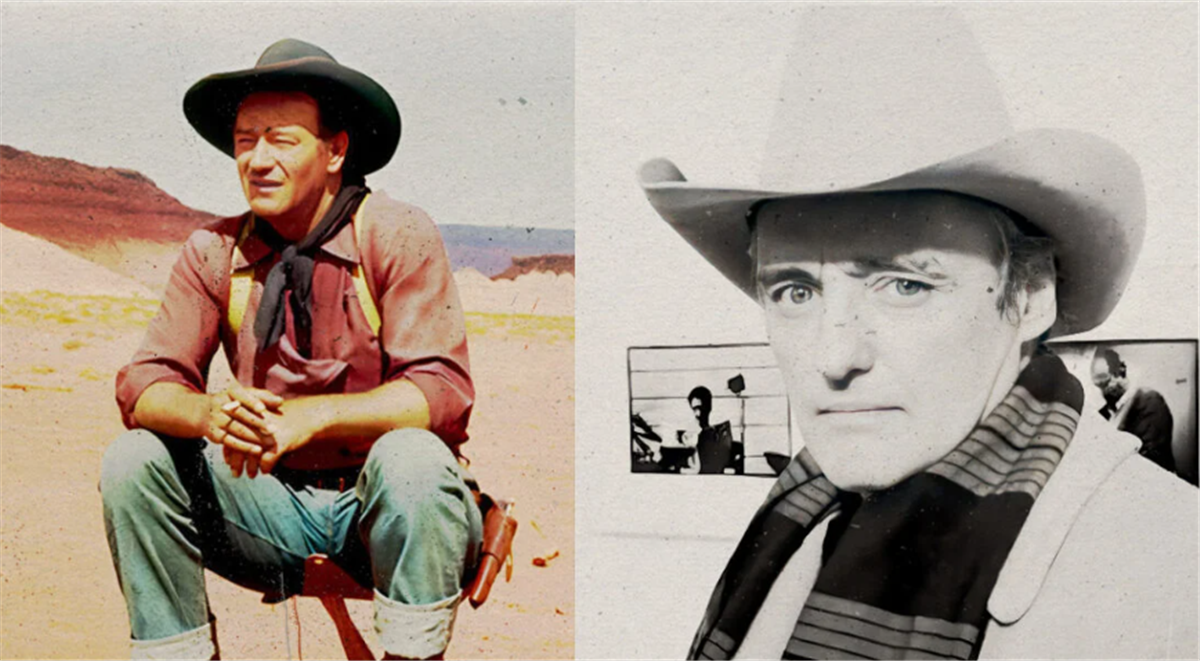Becoming an icon in Hollywood can be achieved in a myriad of ways. Some gain their legendary status through hard work, great movies, and professionalism. Others are bestowed their place in Hollywood’s pantheon of acting greats through potluck, simply being in the right place at the right time. Meanwhile, other performers find their names etched into history via infamy rather than anything attached to their work. Looking at the stars of True Grit, John Wayne and Dennis Hopper, is to gaze upon two icons who took very different pathways to their pedestals.
One was the all-American actor, built out of the foundations of the US dominance over the world. Wayne operated as a capitalist dream, never veering too far from the comfort of centralised performance and never underdelivering at the box offices. Wayne was a macho hero who doubled down in his personal life on what it meant to be an American. Dennis Hopper couldn’t have been further removed from this sentiment, not only championing the counterculture movement but acting as a bastion of freedom and artistic endeavour. Things were always bound to go awry when the two met on set.
Dennis Hopper had many feuds throughout his life due to his crazy lifestyle and eccentric tendencies. Known as ‘Hollywood’s Original Hell-Raiser’, Hopper indulged in all kinds of activities such as asking for cocaine as payment on Apocalypse Now, almost entirely destroying a small Peruvian town, and snorting a dead woman’s ashes, among other objectionable incidents.

Thanks to his unique disposition for destruction off-screen and his charismatic presence on it, Hopper had many fans. However, there were others who despised his very existence, including Hollywood legend John Wayne. As a global icon who was proof of Hollywood’s omnipresent influence, Wayne could not stand the fact that artists like Hopper were active threats to the illusory images propagated by the industry.
They collided on the set of Henry Hathaway’s The Sons of Katie Elder, which resulted in a famous exchange. Although Hopper had previously worked with Hathaway on From Hell to Texas, he was banned from Hollywood after having a heated disagreement with Hathaway. Hopper later claimed that John Wayne saved his career by giving him a chance.
Recalling the offer, Hopper said: “Eight years later Henry phoned and said Duke (John Wayne) and I have talked this over and you’ve married a nice Irish woman’s daughter, Margaret Sullivan’s daughter, and we understand that you have a daughter so we’re going to give you a job here because you’re a wonderful actor.”
However, Hathaway warned Hopper that Wayne was not a fan of method acting at all. According to the actor, Hathaway was very receptive to Hopper’s work on The Sons of Katie Elder and he even claimed that Hopper had become a smarter actor, but Wayne was neither an admirer of Hopper’s work nor his personality.

Alex Cox, who had worked as Hopper’s henchman, wrote: “Perhaps due to his ironic tendencies, Wayne and Hathaway thought Dennis was some kind of communist. Dennis told me Wayne came looking for him with a gun, to kill him. This was because Stokely Carmichael, the black radical, had used the F-word in a speech at UCLA, where Wayne’s daughter went to school. Wayne blamed Dennis for the 1960s.”
As a very vocal conservative, Wayne truly believed that Hopper was representative of everything that was wrong with the ’60s and his anger was reflected in his on-set behaviour. Frustrated by the fact that his daughters had listened to a speech by a civil rights leader, Wayne held Hopper responsible.
He called Hopper his own “in-house commie” and threatened to kill him: “I want that red motherfucker. Where is that commie hiding?” According to the reports from the set, Hopper spent that afternoon hiding in a cupboard. Although their partnership on The Sons of Katie Elder was volatile, Hopper worked with Wayne again on True Grit, and this time, perhaps because of age and a softening of their respective values, it appeared as though they largely enjoyed each other’s company. Hopper would release Easy Rider — the ultimate thumb to the nose of American conservatism — only a few months after True Grit and undoubtedly put himself back on Wayne’s hit list.
